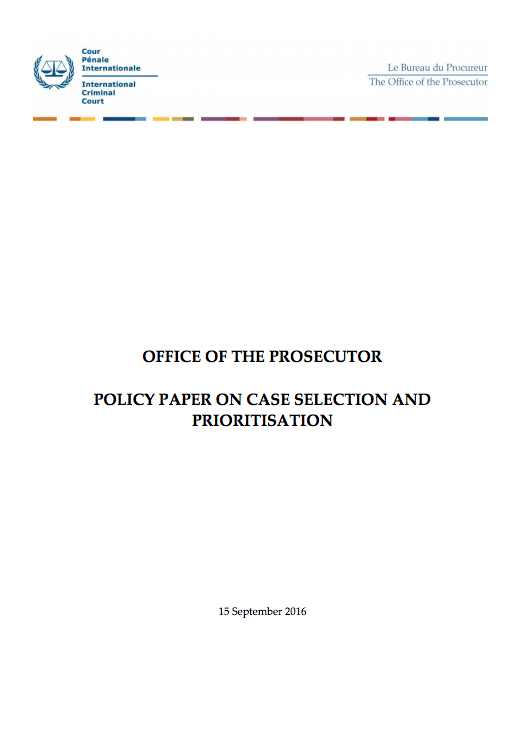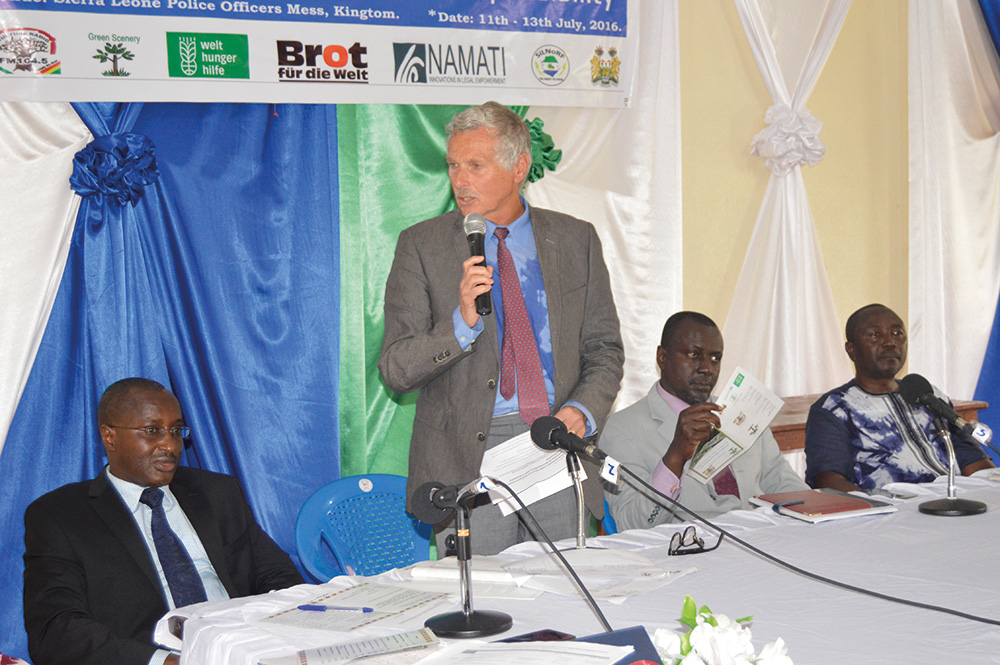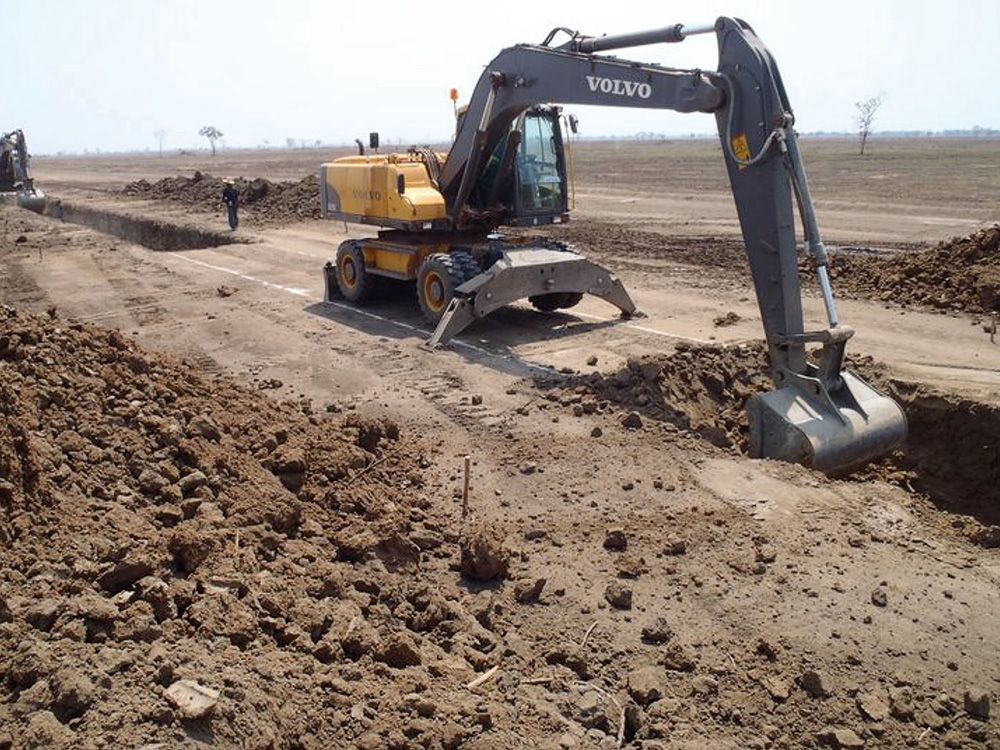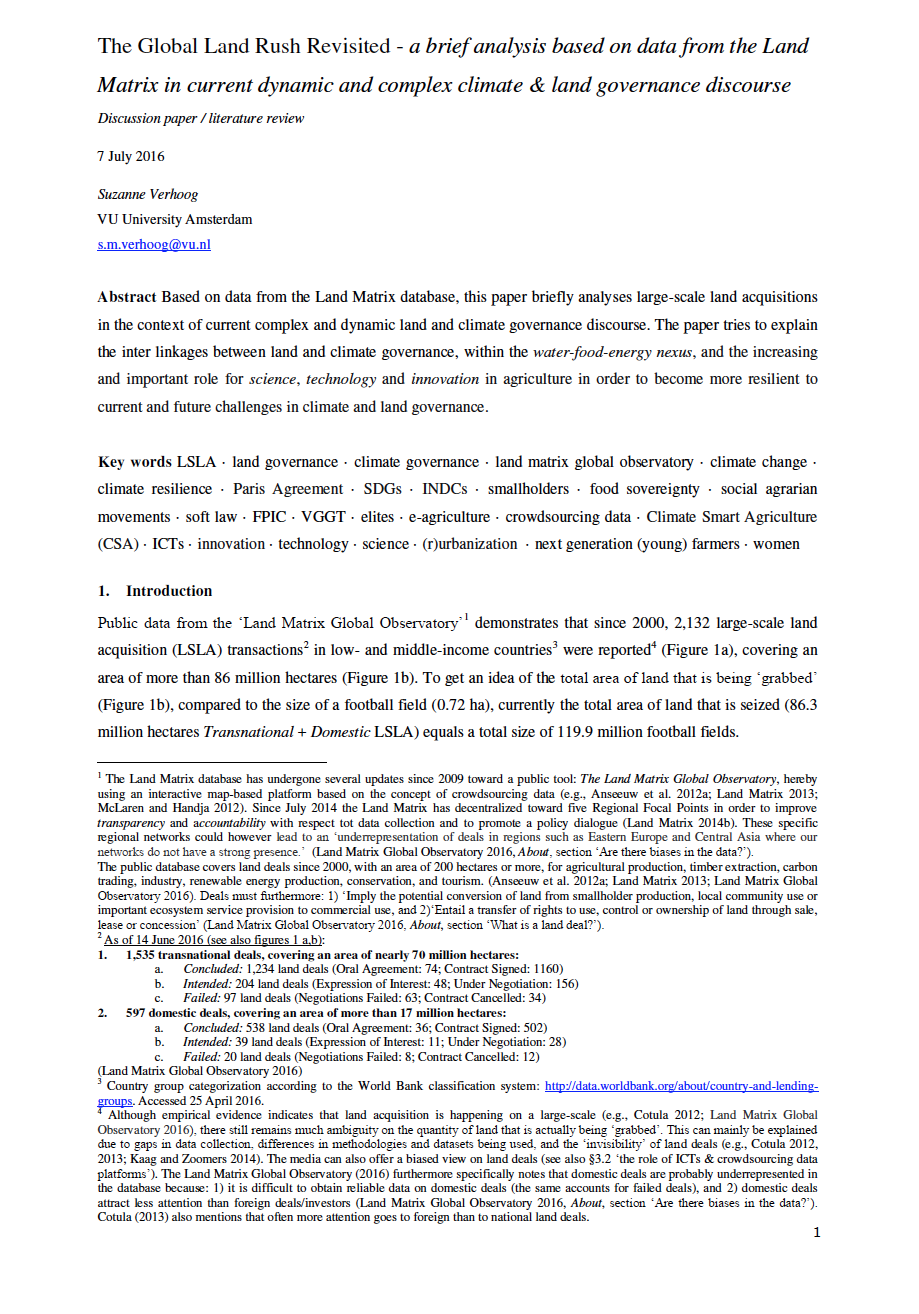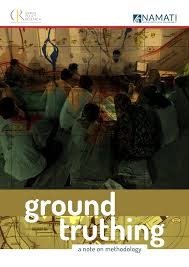How institutions shape land deals: The role of corruption
Large-scale land acquisitions, or land grabs, concentrate in developing countries which are also known for their corruption-friendly setting caused by a weak institutional framework. We argue that corrupt elites exploit this given institutional set-up to strike deals with international investors at the expense of the local population. Using panel data for 157 countries from 2000-2011, we provide evidence that these land deals indeed occur more often in countries with higher levels of corruption.





